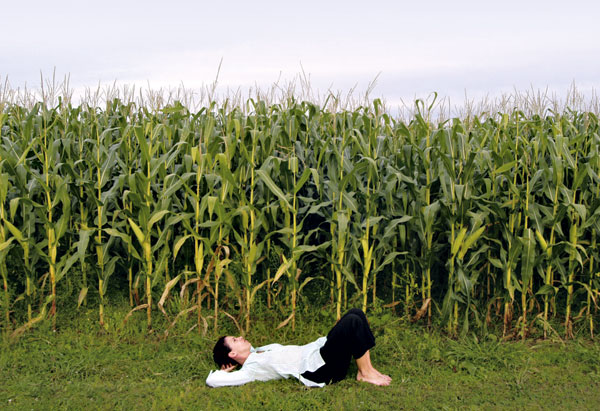You Have The Right To Remain Silent

Photo: Greg Kessler
Your cell phone is ringing. Your inbox is overflowing. Your friend wants to discuss her son's glue-sniffing habit. Martha Beck has news for you—you don't have to Be There for all people all the time. Just follow her escape routes.
My thesis: The great English writer E.M. Forster may have valued connection above all else, but for us 21st-century folks—with our jam-packed Rolodexes, e-mail from intimates and strangers, phone messages left by friends, colleagues, passing acquaintances, and the occasional deranged stalker—disconnection is as necessary as connection for creating a healthy, happy life. When we force ourselves to connect against our heart's desires, we create false, resentful relationships; when we disconnect from the people who deplete us, we set them free to find their tribes while we find ours. I planned to illustrate these thoughts with snippets of Greek philosophy, and perhaps even the poetry of Robert Frost.
But it has just occurred to me that this refined approach is not how I actually disconnect—and I need to disconnect a lot. Overconnection is my major occupational hazard. My job is all about soulfully linking with others, and this is truly as much fun as I've ever had with my clothes on, but after doing this with many people for many hours, I often feel as if I've watched ten great movies back-to-back: dazed, frazzled, longing for silent solitude. I'm not up to gracious separation; I need quick-and-dirty ways to save my sanity, right now.
So I've listed some of my favorite disconnection strategies below, in the hope that you might find them useful. Please remember that this advice is not for the E.M. Forsters of the world but for those of us who are already connected up the wazoo.
Martha Beck's Favorite Disconnection Techniques
1. Hide. I'm sitting in my room at a beautiful wilderness retreat where intelligent, sensitive, wonderful people come to renew their spirits. I've been running a workshop meant to stir the deepest reaches of the participants' fears and dreams. I've also been living on tap water and protein bars because the thought of going to the dining hall, where I would end up connecting for another hour with those intelligent, sensitive, wonderful people, makes me want to shoot myself.
I packed for this trip with disconnection aforethought, tossing in 20 protein bars with the express intention of hiding out. Blame my high school English teacher—I'll call her Mrs. Jensen—who married at 17, bore her first child at 19, and was a farmwife and mother of four by age 22. When she felt overwhelmed, she'd retreat into a field of tall corn near her house and hide there, listening to her children search for her, until she heard a cry of genuine pain or felt ready to reconnect, whichever came first.
"Martha," Mrs. Jensen told me, "every woman needs a cornfield. No matter what's happening in your life, find yourself a cornfield and hide there whenever you need to."
All these years later, this advice still gives me permission to sit here by myself contemplating whether I should eat the nondairy creamer from my in-room coffee setup, just for variety. I've used hundreds of other "cornfields" over the years: cars, forests, hotels, bathrooms. I've been known to hide for days, but even a few minutes can calm my strung-out nerves—or yours. If you don't already have a cornfield, find one now.



